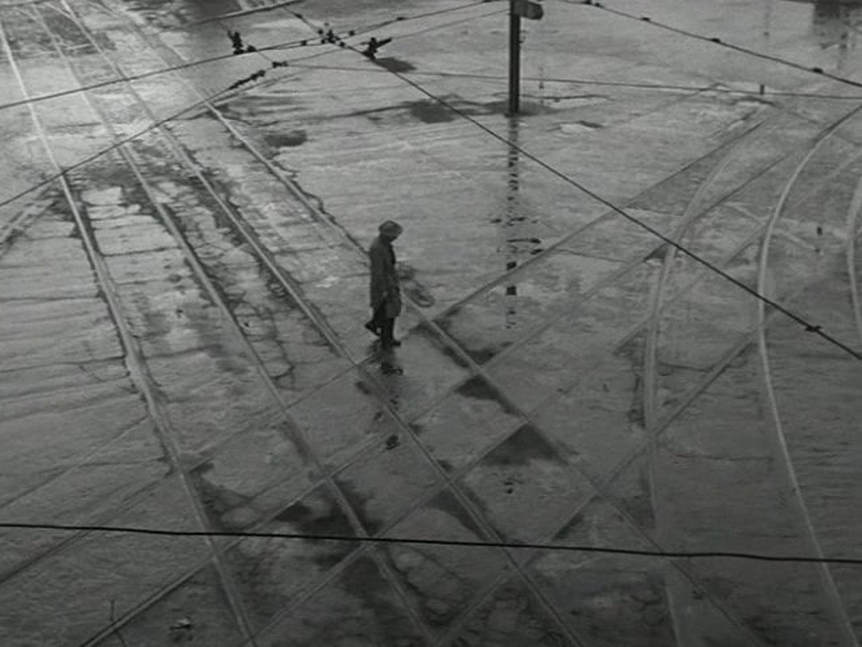|
A grim portrait of a day in the life of an alcoholic, The Noose is harrowing deconstruction of addiction in which a kafka-esque nightmare of brooding paranoia and withdrawal-induced anxiety is fully-realized in vivid detail, as Wojciech Has crafts an intimate, honest portrait of addiction void of simplistic or judgmental assertions. Opening in the cramped, claustrophobic flat which our main protagonist inhabits, The Noose wastes no time with its visualization of an alcoholic, imploring a series of off-kilter compositions which evoke the anxiety-riddled struggle taking place from within our main protagonist. He is a man who is desperately trying to regain control of his life; aided greatly by his girlfriend, but when she goes to work for the day he is left alone, with only his temptations to keep him occupied. What transpires over the next 80 minutes of The Noose is a battle of will, with our protagonist fighting his addition, as he wonders the streets of his Polish community in an attempt to escape his own mind. Along with Billy Wilder's The Lost Weekend, The Noose is one of the most honest, nuanced portraits of alcoholism; a film which understands the true weight of addiction on the psychology of an individual, doing so at a time in which there was little common knowledge about this internalized struggle. The Noose is more impressionistic, which isn't very surprising given it comes Wojciech Has, yet the film's ability to showcase the parallels between addiction and loneliness stood out. Loneliness and Addiction are two forces which feed into each other in The Noose, as our main protagonist struggles most when he finds himself alone in his own head; grappling with his inner psyche over what he wants - whether to be sober or clean. He is presented as a man who truly wants to be clean, and has the help of a loved one who cares deeply for him, yet it's this internal battle from with-in that plagues him; a man who is tormented by pessimism, often reinforced by various locals who know him as a drunkard, while also offering up glimpses of optimism about finally being clean. Wholly intimate in approach, Wojciech Has' also seems to speak to the larger social issues plaguing Polish society as a whole; with the film detailing how their are temptations everywhere, with drunkards being a regular occurrence on every street corner in which this main protagonist traverses. While the perceptions of our main protagonist are certainly a factor in how this town is presented, The Noose portrays Polish life in a way that is hopeless and stagnant, with the bar patron which our protagonist befriends being the best example of this. This man is presented as a complete drunkard, a character whom is completely lost and defeated by the throngs of addiction, yet we also learn he was once prominent saxophonist. This character serves not only as projection of the main protagonist but perhaps one for society as a whole, as Wojciech details the degradation which alcoholism and addiction can have on any individual, even one who was once driven or successful. Exhibiting addiction as an insurmountable force, The Noose is a introspective, albeit forceful, deconstruction of the toxic nature addiction has on the psyche; detailing in its main protagonist a man whom struggles mightily from with-in, despite being loved and supported by his girlfriend.
0 Comments
Leave a Reply. |
AuthorLove of all things cinema brought me here. Archives
June 2023
|

 RSS Feed
RSS Feed
